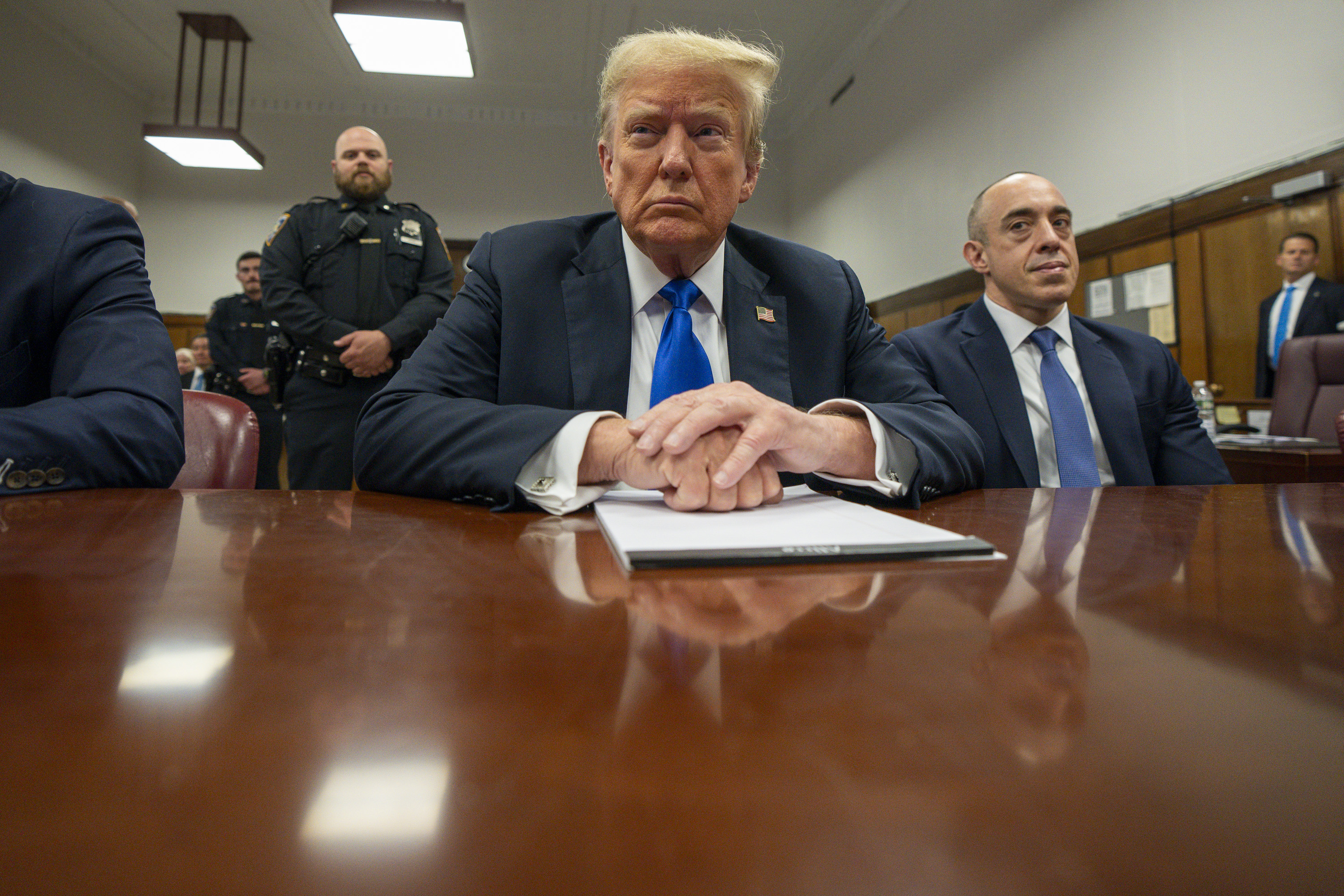Thousands of marijuana shops boldly opened without a license in New York City after the state legalized recreational use of the drug, but after more than a year of lax enforcement, new state rules are finally allowing officials to padlock their doors.
New York City's sheriff’s office says it has shuttered around 700 illegal stores since new state regulations passed in April. The unsanctioned shops had become ubiquitous across the Big Apple, when the city’s power to step in had been limited and the legal market was mired in red tape.
Officials had estimated there were some 2,900 unlicensed vendors throughout New York City — compared to around 60 licensed dispensaries currently operating. But cannabis industry licensees say the sheriff is starting to bring order.
Enforcement used to be “kind of a joke, and now it's not," said Sasha Nutgent, retail director of Manhattan’s Housing Works Cannabis Co., which rang up the state's first legal marijuana sale in December 2022.
Around 100 shops have successfully defended themselves against the fines since April, sometimes by citing faulty paperwork or the sheriff’s lack of evidence, according to analyses of city administrative hearing data by The Associated Press and the City Council's investigative arm. But some of those businesses still closed anyway.
When New York first legalized marijuana in 2021, the regulations initially didn’t give local law enforcement agencies much power to punish unlicensed sellers, assigning that to the nascent state Office of Cannabis Management. Officials stressed that they didn’t want to “recriminalize” the drug as they tried to make up for decades of prosecutions.
Get Tri-state area news delivered to your inbox. Sign up for NBC New York's News Headlines newsletter.
Meanwhile, strict eligibility requirements on who could receive a license to open a dispensary, bureaucratic delaysand lawsuits slowed the launch of legal stores. Gov. Kathy Hochul, a Democrat, declared the rollout a “disaster.” New York still has only 150 dispensaries statewide. By comparison, California has around 1,200, though the state has also struggled to shut down illegal shops.
Local
New York City and state officials have promised tough enforcement in the past. Last year, lawmakers expanded the state's powers for inspections, seizures and fines , which it then used to close some stores, while Manhattan's district attorney sent hundreds of sternly-worded letters to landlords. But most of the stores persisted, ignoring the threat of eviction or financial fines, and were able to continue operating as lengthy appeals played out.
While Housing Works has reported $24 million in sales in its first year, Nutgent said some licensed stores have struggled because of the illicit competitors. They don’t pay the additional taxes that helped legalization become palatable to legislators, and often flout state restrictions on advertising and promotions.
But since the new enforcement powers came in, business at licensed dispensary The Cannabis Place in Queens has increased by around 35% “because the customers in the area didn’t have anywhere else to go," said manager Tamer Eltabib.
The powers, passed in the state budget, gave local authorities the ability to padlock stores while administrative hearings play out. Because the sheriff's office can inspect businesses without a court order, it's able to quickly raid retail stores and seize products. A lawsuit was filed in federal court arguing the practice denies stores due process, but has not won any favorable ruling that would stop it. The law firm representing some two dozen shuttered stores in the lawsuit declined to comment.
The sheriff’s office says it has also issued violations amounting to more than $57 million since April, though it’s unclear how much of that sum has been collected.
The sheriff’s office declined to comment, referring questions to City Hall, which said 15 teams of deputies and NYPD officers are being sent out daily.
“If you are operating an illegal cannabis business, our administration is sending a clear message: You will be shut down,” the office of Democrat Mayor Eric Adams said in a statement.
City Council Member Gale Brewer, a Democrat who strove for two years to shutter an unlicensed weed shop across the street from her office on Manhattan’s Upper West Side, says the latest effort is finally helping to nip the problem in the, well, bud.
“There’s no question about it,” she said.



